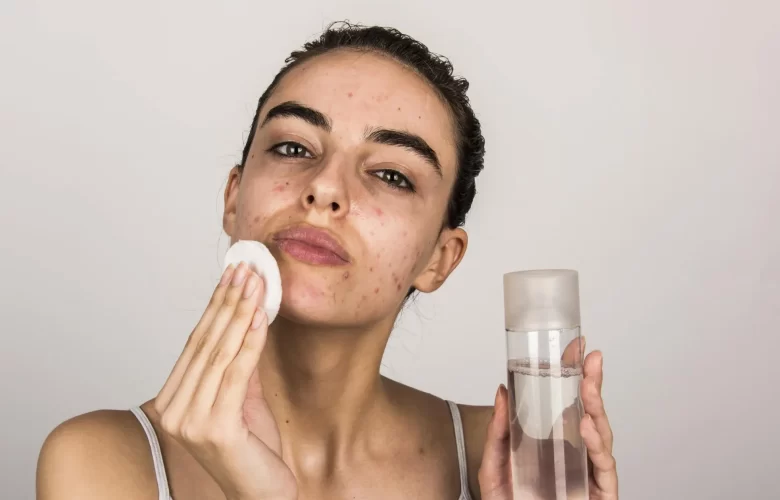Table of Contents
Introduction
At times, it is hard to know what your skin needs to achieve clear skin. A good skincare routine is essential if you are prone to acne or breakouts. There is also a battle against whiteheads, blackheads, cystic acne, and pimples.
Multiple products are available with too much conflicting information, creating confusion about the right skincare routine for acne.
However, your daily skincare routine should be simple but effective for your skin. The article will emphasize things you should do to get clear skin and follow a skincare routine for managing acne.
Tips On The Best Skincare Routine For fighting Acne
Here are some tips to help you with the best skincare routine for fighting acne.
1. Wash your Face Twice A Day
If you are facing the issue of breakouts or acne or have oily skin, do not skip washing your face as part of the evening and morning skincare routine.
Wash your face at least two to three times a day. If you continue this, you will eventually significantly improve the acne lesion.
On the other hand, after you wash your face, use a soft cloth or your fingertips to cleanse your face. Along with your face, wash your neck and jawline as well.
2. Apply Acne Fighting Agent
If you must find your acne-fighting agent, you should know your skin type first. On the basis of your skin type, the acne-fighting agent recommends the following-
- Acne with scarring- use azelaic acid to help reduce acne and the overall risk of acne scarring.
- Inflammatory acne, which contains 5% gel, is good for young female adults.
- For mild acne, you can use topical benzoyl peroxide.
3. Use Mild Cleanser
When it comes to choosing the best cleanser, purchasing any fancier product might be optional. Thus, a mild cleanser with minimal ingredients can work just as well as more expensive options.
Depending on your skin type, ensure that you use the right cleanser. For instance:
- Non-medicated cleanser- If you are using prescribed acne medication, you would require a gentle cleanser. You can use skin care product which contains benzoyl peroxide or salicylic acid.
- OTC Wash- also known as over-the-counter acne treatment, is a good choice when you face mild breakouts.
4. Exfoliate
Exfoliating your skin can remove the excess dead skin cells. If you do not exfoliate your skin at least once a week, the excessive skin can clog pores and lead to breakouts.
You can use a mask exfoliation at least twice a week. Similarly, a scrub or brush is for three to four times a week.
Hence, start with fewer exfoliating sessions and work your way up so that you can prevent over-exfoliating.
5. Do Not Skip Your Sunscreen
Remember that no matter what skin type you have, sunscreen is a must and should be a part of every skincare routine.
If your skin looks dull and oily after applying sunscreen, switch to a gel-based that would give a matte finish with SPF.
When you apply a light-based sunscreen, it will protect your skin from both UVA and UVB rays. Similarly, you can also use it under your makeup.
6. Get Plenty Of Sleep
If you are not getting enough sleep, then it causes your skin to break out even more.
As per the professionals, 65% of the respondents who had acne were not getting enough sleep all throughout the day.
Thus, if you do not sleep for an adequate number of hours, it causes the body to inflammatory compounds. Hence, these compounds cause breakouts and further worsen your acne.
Remember to stay healthy both in and out and aim to sleep atleast eight to nine hours of quality sleep every night.
Other Considerations
If your skin is prone to acne, you should avoid limiting the number of products you use since too many can cause skin irritation and potentially block pores.
However, assuming you think ance can be caused by an underlying condition, or if it is not responding to the treatment you have been taking, make an appointment with the board-certified dermatologist.
Thus, when it comes to clear skin, pay attention to what you can put on your face, such as makeup, cleanser, and moisturizer. Hence, focus on certain lifestyle factors like a healthy diet, quality sleep, and managing stress, which would improve your skin overall.

